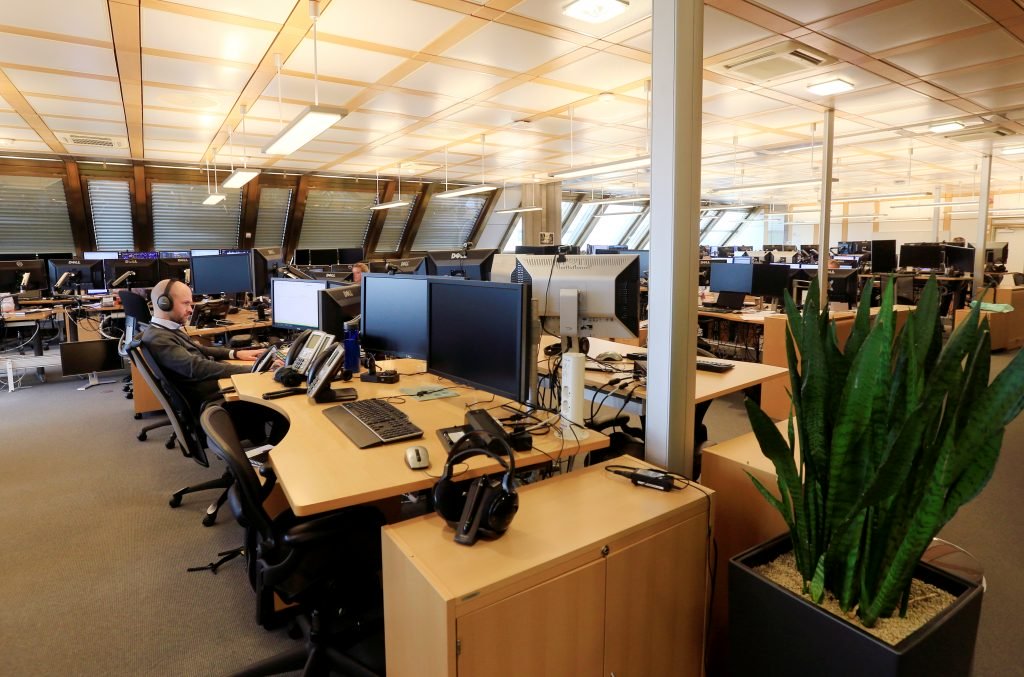
With over $1 trillion under management, Norway’s Norges Bank Investment Management (NBIM) is the world’s largest sovereign wealth fund. Supposedly, it is also one of the world’s most ethical: a mandate for “responsibility” precludes its investing in tobacco, coal, palm oil and other ethically or environmentally compromised companies. But that hasn’t stopped it from investing in over 600 Chinese companies, including ones now blacklisted for facilitating human rights abuses.
NBIM’s most recent data reports holdings of over $24 billion in Chinese assets, including $22.8 billion in Chinese equities and $1.3 billion in Chinese government and corporate bonds. It has over $900 million invested in Chinese telecoms, $1.7 billion in Chinese industrials, and a further $5 billion in Chinese tech. Among these are $110 million and $24 million investments in Hangzhou Hikvision Digital Technology (the world’s largest surveillance company) and Zijiang Dahua Technology respectively, both companies that the US blacklisted for facilitating the repression of Uyghur Muslims in Xinjiang.

NBIM reports its holdings as of December 31, 2018, prior to the US blacklisting of Dahua and Hikvision, and it may have reduced them since. Yet sanctions or not, NBIM’s investments reflect the failure of international investors to approach China with adequate skepticism. NBIM’s responsibility mandate requires the companies it invests in to be transparent, not engaged in corruption, and respectful of human rights. Yet by the nature of China’s communist regime, Chinese companies are unavoidably non-transparent, involved in corruption, and connected to a state that is committing massive human rights violations. Dahua and Hikvision may be only the tip of the iceberg. How many of the other 600 Chinese companies in which NBIM has invested support repression?
NBIM’s funding of other institutions, like the Nordic Investment Bank (NIB) may also conflict with its mandate. Consider Huawei, in which NBIM has not directly invested and which is competing with Finnish telco Nokia. Early last year, Finnish telecoms giant Elisa announced that it was conducting a 5G trial in Helsinki with Huawei. Last December it announced it was proceeding with limited deployments in Finland and Estonia aided by a €100 million investment from the Helsinki-based NIB.
It seems strange, to put it mildly, that the NIB should be funding Huawei, after Chinese policies and IP theft already helped to bring down its North American competitors, Nortel, Motorola, and Lucent, leaving two Scandinavian companies, Nokia and Ericsson, among its only remaining competitors.
Scandinavian funds are by no means the only “responsible” investors wrapped up in Chinese human rights abuses. Hikvision was included in numerous environmental, social, and governance (ESG) funds, which were supposedly built to invest ethically. MarketWatch reported that as many as 34 ESG-funds held $388 million in Hikvision shares as of May. As our colleagues Danielle Pletka and Derek Scissors have pointed out, the California State Teachers’ Retirement System, the New York State Teachers’ Retirement System and the Florida state pension fund also invested in Hikvision. In addition there are questions about the World Bank Group with its multi-billion dollar lending framework for China, including a $50 million Technical and Vocational Education Project in Xinjiang.
All of this raises uncomfortable questions for “responsible” investors. Chief among these is whether it is possible to invest responsibly in China, where companies are required to support national intelligence work, are often backed by state venture capital funds, typically have Party cells, and whose executives are Party members.
At a minimum, the answer should be a clear “no” for companies with
egregious human rights or trade violations. These include the companies that
facilitate Xinjiang’s “reeducation” camps and violate North Korea sanctions;
that threaten global internet security, like Huawei and ZTE; or that actively
work to put other telecoms infrastructure providers out of business.
As long as Chinese companies are involved in these behaviors, NBIM and other “responsible” Western investors need to reassess how they invest in China. Until they do, they will be aiding some of the worst conduct of China’s totalitarian regime and their ethical claims will ring hollow.
The post Wouldn’t morality also be better for business? appeared first on American Enterprise Institute – AEI.
